Welcome to the March 2014 Carnival of Natural Parenting: Everyday Superheroes
This post was written for inclusion in the monthly Carnival of Natural Parenting hosted by Hobo Mama and Code Name: Mama. This month our participants have talked about the remarkable people and characteristics that have touched their lives. Please read to the end to find a list of links to the other carnival participants…
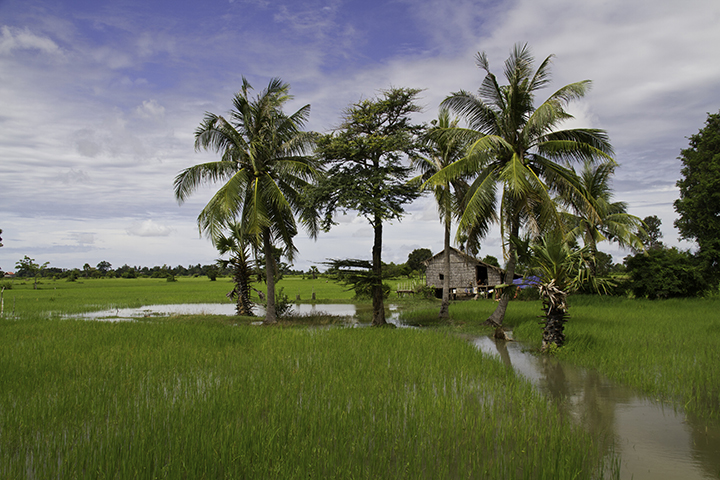
Nothing against workdays at the office. There’s something to be said for air-conditioned comfort when the blistering sun and uneven roads await activities that donors have pledged tax dollars for. Besides, all the preparatory, follow-up and administrative work is necessary.
But fieldwork is where the action is – where meaningful interactions happen and that flash of inspiration hits, giving you hope that what you’re doing in the bulk of your waking hours matter. So I look forward to these jaunts to the countryside.
Out on the national roads, rice fields stretch into the distance, peppered by swaying palms and coconut trees, and the occasional thatched hut on stilts. Small figures dot the landscape. Through the planting and harvest seasons these fields are full of activity. I instinctively zero in on the women – mothers, some of them pregnant or with a baby slung on their back (or both!) – toiling in the fields. The moment you become a mother you’re initiated into a global kinship that transcends the range of social constructs. We have something big in common. And like each of us surviving our own realities, that mom in the field has her own unique angle on motherhood.
Three years ago, my ten hours of labor ended in an emergency cesarean. I have no complaints. Ours was the most purpose driven pregnancy. My husband and I took birthing courses (plural). I tried yoga and meditation sessions, continued running until I was well over 5 months then kept to an exercise regimen, and ate a balanced, chemical-free diet. My body was in good shape by the time we came to term. Giving birth in Cambodia was out of the question for reasons following, and there were few birthing centers reasonably accessible, so off we flew to Bangkok for the best nearby hospital (baby-friendly!) and obstetrician (low cesarean rate!). We even hired a doula and pre-booked the premier birthing suite equipped with yoga balls, ladders and swings, a birthing pool and Beethoven on the playlist. We did what we could to ensure a smooth delivery, but the medical safety net was in place in case of complications.
It was an ordeal, and when I think of courage, I think back to this time and what all mothers go through. (On this note – how did the tradition of celebrating the child in birthdays start? Isn’t mom the hero on this anniversary?)
Contrast my experience with the birthing reality of the women in those rice paddies. A decade ago, maternal deaths were so common that everyone knew someone who died in childbirth. Most births weren’t even attended by skilled attendants. “Giving birth is like crossing a river,” goes an old Khmer proverb; it was so dangerous that families prepared for the likelihood of losing the mother, the baby, or both.
With concerted effort, significant gains were made in decreasing maternal mortality, but the proverb still holds. The country is recovering from decades of war, so the building blocks of a functional medical system are still being laid. Maternal care in the capital is improving, but standards are generally low in rural areas.
Imagine bouncing over unpaved country roads in a steel wagon pulled by a motorbike – while in labor – to get to the one health facility in tens of miles. When you arrive, the facility might not have sufficient drugs (like anesthesia), supplies (like soap, water, a sterile delivery kit), or power (because electricity is at a premium). You assume the health staff can handle a normal birth (at least), but the likelihood of her being current in emergency obstetric and newborn care is abysmal (clinical training is poor). Not only is income for health staff so low it doesn’t cover her family’s basic needs but, worse, salaries are routinely months behind in payment. This means staff rely on multiple income generating activities (will there even be anyone at the facility when you arrive, in labor?).
With every delivery I witness here, I’m left deeply impressed at how women – not just Khmer, but all over the developing world – enter motherhood in full realization it might literally be the death of them. The possibility of death from obstetric complications or from a vaccine-preventable illness before baby’s first birthday never crossed my mind. My biggest worries were sore nipples, how to keep the baby latched during takeoffs and landings, and finding spare parts for my Medela Pump-in-Style here in Southeast Asia.
Most pregnancies end in a natural process with a healthy mama and baby. Through factors beyond our control, our first birth happened to be in the small percentage that resulted in complication. What would have been our outcome had I been one of these women, whose odds of surviving childbirth (or baby surviving the first year) can be like rolling dice?
There are no bounds to the strength of motherhood. We all put our heroic best forward. But I am deeply humbled by the courage and heroism of mothers in the figurative global “South”. In this day and age, that childbirth is so dangerous for millions of women is a remarkable commentary on humanity and the idea of progress. Born in a developing country myself, I count my blessings every day. Courage? It’s all relative, and sometimes I feel like I know little about it.
Photos from the field
Facilities are open air, so animals routinely wander into health centers and hospitals. Infection control standards were introduced in the health sector only as recently as 2010.
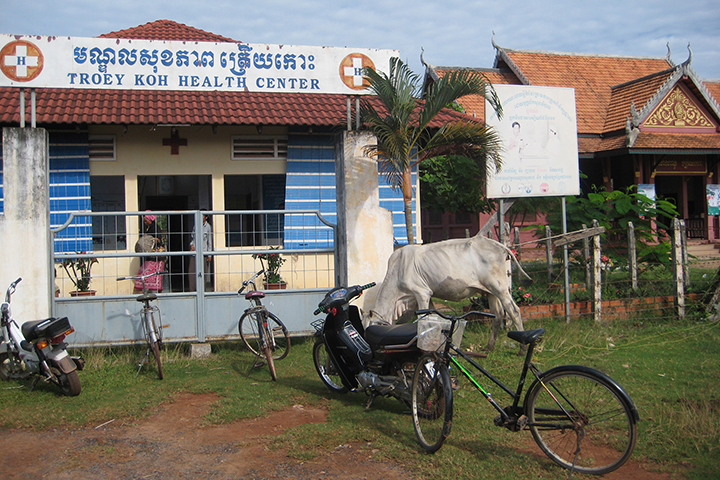
Few health professionals were left after the wars, so cadres of youth were hastily trained to fill demand. Training was applied with little coordination by the government and aid community, with each donor using their own curriculum, training materials, and value system for interventions (cultural approaches to health and medicine differ by region eg Spanish vs French colonies, Europe vs Asia, etc). To be fair, it can take years of collaboration across sectors to agree on protocols and regulation – a luxury Cambodia didn’t have immediately following the wars.
The challenge today (and bulk of development work) is in the ongoing training of these clinicians while they’re in their post. It’s an inefficient use of resources but a necessary task for the Ministry of Health and its partners.
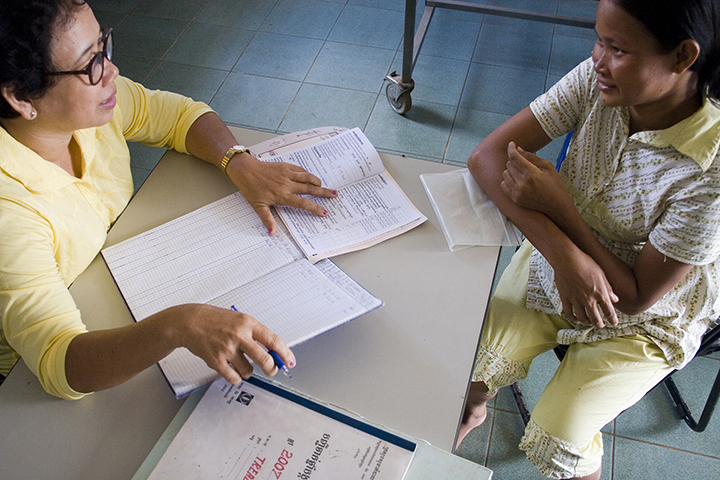
Transportation through provincial roads are by motorbike or “rumorque-moto” – essentially a wagon pulled by a motorbike. With unpaved roads continually molded by flooding and heavy rains, traveling by rumorque-moto or motorbike is not comfortable in the best of circumstances.
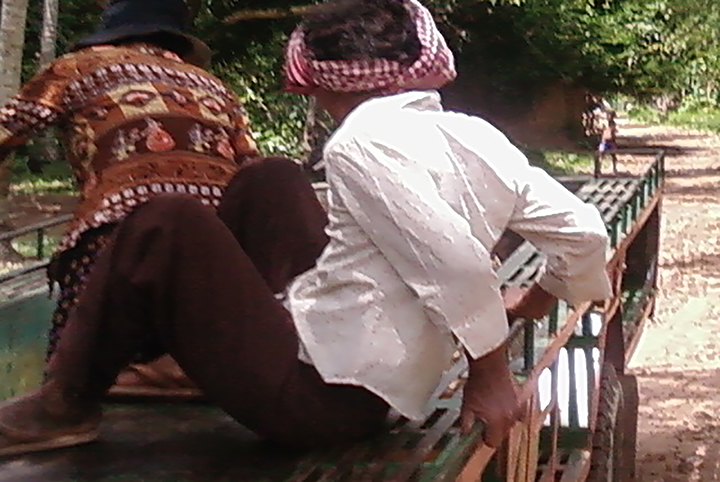
Many complications can be managed through simple, low-tech interventions, but staff are poorly trained to recognize the signs and act quickly on them.
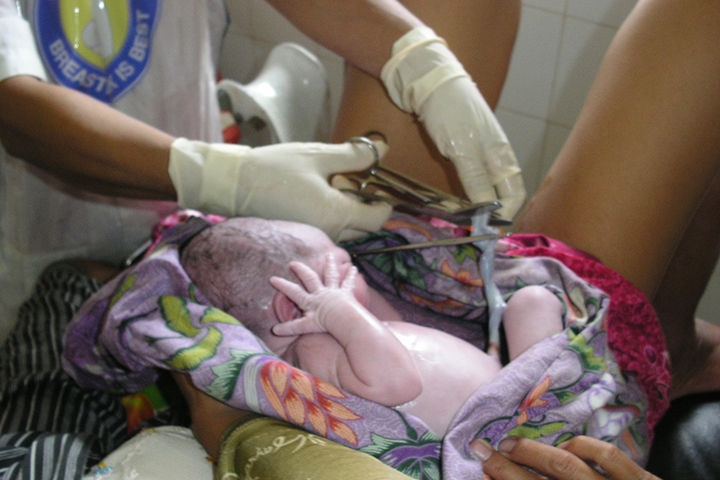
Cambodia and Laos have the highest infant mortality rates in the region, due to illnesses easily preventable through better nutrition, immunization and proper sanitation.
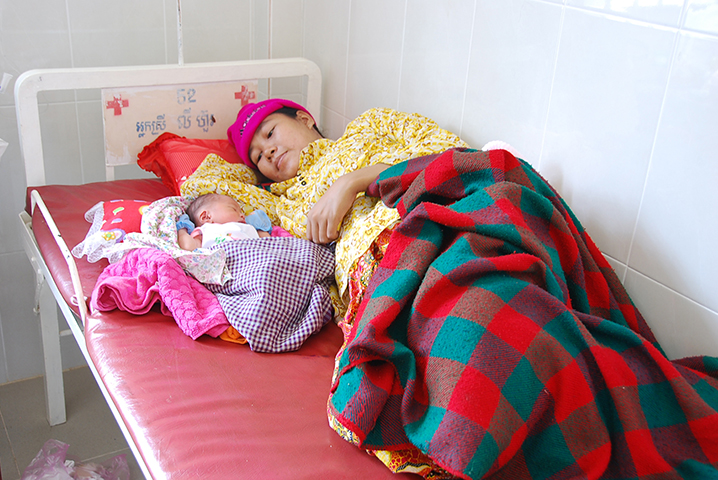
Malnutrition is also prevalent, making growth monitoring very important. This is possible because, with high immunization coverage, every contact provides opportunity for health staff to check the child’s growth (eg measuring and charting height/length and weight). But this woman is lucky if the nurse in charge of vaccination bothers to take the baby’s measurements, or gives advice on proper nutrition and growth.
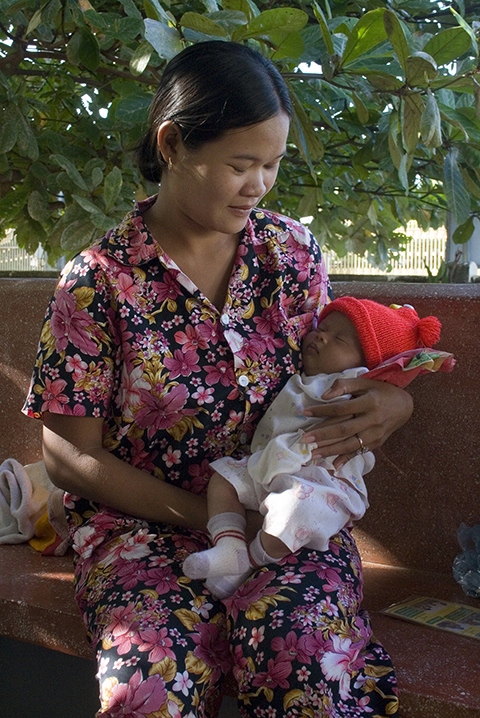
(This topic on Khmer mothers was chosen to commemorate International Women’s Day 2014, whose official theme is “Equality for women is progress for all.” Thanks for reading..)
*******
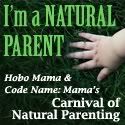 Visit Hobo Mama and Code Name: Mama to find out how you can participate in the next Carnival of Natural Parenting!
Visit Hobo Mama and Code Name: Mama to find out how you can participate in the next Carnival of Natural Parenting!
Please take time to read the submissions by the other carnival participants:
(This list will be updated by afternoon March 11 with all the carnival links.)
- I Am A Super Hero — Jennifer at Hybrid Rasta Mama shares how she learned the hard way exactly what it means to be a real super hero and not a burned out shell of a human simply pretending to be one.
- Quiet Heroics — Heroism doesn’t have to be big and bold. Read how Jorje of Momma Jorje is a quiet hero…and how you probably are, too.
- Not a Bang, but a Whisper {Carnival of Natural Parenting} — Meegs at A New Day talks about the different types of “superheroes,” ones that come in with a bang and ones that come in with a whisper.
- Silent courage of motherhood in rural Cambodia — Nathalie at Kampuchea Crossings marvels at how rural Khmer women defy the odds in childbirth.
- Super Pappy — Mother Goutte‘s little boy met a superhero in checked slippers and Volkswagen Polo, his grand dad: Super Pappy!
- An Open Letter to Batman — Kati at The Best Things challenges Batman to hold up his end of the deal, in the name of social justice, civic duty, and a little boy named Babe-O!
- My Village — Kellie at Our Mindful Life reflects on the people who helped her to become her best self.
- 5 Lessons My Kids Taught Me — Children are amazing teachers, when we only stop to listen. They remind us to choose happiness, to delight in the small things, to let go and forgive. There is so much we can learn from our children. Justine at The Lone Home Ranger shares a few of the lessons she’s learned.
- Could you use some superpowers? — Tat at Mum in search shares a fun activity to help you connect with your own superpowers.
- Like Fire Engines — Tam at tinsenpup tells the story of the day she saw a surprising superhero lurking in the guise of her not entirely mild-mannered four-year-old daughter.
- Everyday Superheroes — Erica at ChildOrganics shares her list of Walker Warburg Syndrome Superheroes that have touched her life forever.
- My Superhero of the Week: Nancy Gallagher — Tribal Mama muses about the transcendent things her superhero mom has done.
- My choice in natural birth does not make me a super hero — Bianca, The Pierogie Mama, discusses her thoughts on her experience with the perception of natural birth and putting those mamas on a different level. Does giving birth naturally give cause for an extra pat on the back? No! All mamas, no matter how they birth, are superheroes.
- Someone’s Hero — Sometimes being a parent means pretending to be a grown-up, but it always means you are someone’s hero. Read Mandy’s lament at Living Peacefully with Children.
- Growing into a Super Hero — Casey at Joyful Courage shares how owning our behavior and choosing to be a better parent, a better person, is an act of courage.
- A Math Superhero — Kerry at City Kids Homeschooling writes that her 7-year-old daughter’s superhero is an MIT-trained mathematician.
- It Starts With Truffula Trees And Tulips — Luschka of Diary of a First Child takes a hard look at the realities of her relationship with her mother, and through this post goes on a journey of discovery that ends in a surprise realisation for her.
- We Don’t Need an Excuse — Maria Kang (aka “Hot Mom”) asks women #WhatsYourExcuse for not being in shape? Dionna at Code Name: Mama asks Hot Mom what her excuse is for not devoting her life to charity work, or fostering dozens of stray dogs each year, or advocating for the needs of others. Better yet, Code Name: Mama says, how about we realize that every woman has her own priorities. Focus on your own, and stop judging others for theirs.
- It’s not heroic when you’re living it — Lauren at Hobo Mama knows from the inside that homeschooling does not take a hero, and that much of what we choose as parents is simply what works best for us.
- Superheroes, princesses and preschoolers — Garry at Postilius discusses why his preschool-age son is not ready for comic book superheroes.
- The Loving Parents of Children with Special Needs – Everyday Superheroes — Deb Chitwood at Living Montessori Now shares posts with resources for parents of children with special needs along with posts to help others know how to support parents of children with special needs.
- Everyday Empathy — Mommy Giraffe of Little Green Giraffe shares why her secret superpower is everyday empathy.
- The Simplicity of Being a Superhero — Ana at Panda & Ananaso explains what superheroes mean to her wise three-year-old.
- My Father, The Hero — Fathers are pretty amazing; find out why Christine at The Erudite Mom thinks hers is the bees knees.
Reading your post reminds me how lucky I am to live and give birth where I live. It also makes me realise how much power we hold – if our efforts and donations can change just one life, how amazing is that!
Wow! How have I never come across your blog before? Well, no matter! Now I have spent half a night here and am so glad to have finally found you. This is a powerful and eye opening post. It proves how much *I* take for granted. I was so very disappointed in my pregnancy and birth experience but then you read the words you wrote and it puts things in such a different light. I thank you for sharing this and I will be sharing as well.
Hi – I find it hard to blog since having kids :-) I don’t know how you and others find the time! (But glad you do cuz I read your and other blogs on CNP!) Thanks for reading :-)
It’s quite humbling to think of these women entering motherhood not knowing what the outcome will be… As Tam says there is always an element of risk that things will go wrong but I find that, in our culture, we expect doctors to be able to solve anything and, when something does go wrong we’re ill prepared to cope with it.
Thank you for sharing that post!
I cannot imagine how different it must be when a woman announces her pregnancy. Instead of the (often) joyous celebration Western mothers have, they are literally facing death. It gives me chills.
There is a blogger who helps organize a “bloggers for birth kits” drive every year – have you heard of her? If not, I’ll dig up the post I published on it last year. It is a great organization!
Thanks so much for writing with us – your article is incredible.
Thanks! I’ll google it. There are many efforts and good intentions, on several levels (systemic approaches, technical assistance, donations etc). But sadly the political commitment is critical for changes across the sector. Maybe with modern technologies there are more opportunities for innovations that allow communities to mobilize their own resources :-)
Thank you for writing about this. Its crazy to me that this isn’t an issue everyone is paying attention to! It is literally tied to the survival of our species! Thankfully there are people (like you!) working to raise awareness about it.
Have you hear of Every Mother Counts (http://www.everymothercounts.org/)? Its an organization formed by Christy Turlington Burns (the model) to raise awareness and funds to help support maternal health in developing nations. She started it after she suffered a PPHemorage and realized that in many countries that could have meant her death. They help supply childbirth kits, train medical staff, etc. Maybe you could hook up with them somehow?
Thanks :-) Donation outfits are great for immediate impact on individuals-if the goods get to the people it’s targeted for. But I’m sure that group does what it can to ensure that.
This is an incredible glimpse into that culture of childbirth. I know from having read a lot of historical writings how common it used to be worldwide for women to die in childbirth, and that it’s still a reality for so many is heartbreaking.
Even under the very best of circumstances things can go wrong during a birth. It’s unacceptable that so many women have to accept these substandard conditions. I feel incredibly blessed to live where I do and have access to so many choices when it comes to where and how my babies are born. Thanks for explaining the situation in such detail. I’m grateful to have a new perspective on the issue.